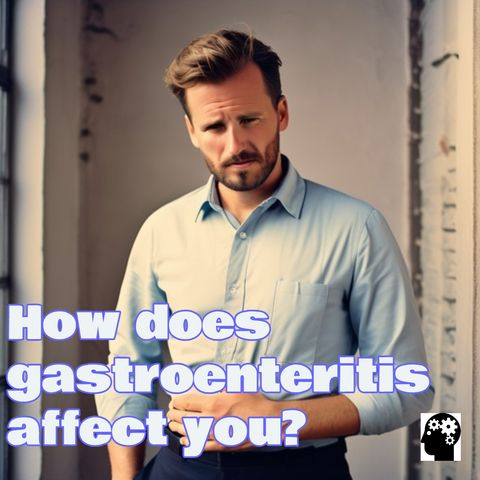
Contacts
Info
Understanding Gastroenteritis: Causes, Symptoms, and Treatment Gastroenteritis, often referred to as the stomach flu, is an inflammation of the gastrointestinal tract, encompassing both the stomach and the intestines. This condition...
show moreGastroenteritis, often referred to as the stomach flu, is an inflammation of the gastrointestinal tract, encompassing both the stomach and the intestines. This condition is primarily caused by infections with viruses, bacteria, or parasites, leading to a variety of unpleasant symptoms.
Causes of Gastroenteritis
The most common cause of gastroenteritis is viral infection, particularly norovirus and rotavirus. These viruses spread easily through contaminated food, water, or surfaces, and are highly contagious.
Bacterial infections, such as those caused by Escherichia coli (E. coli), Salmonella, and Campylobacter, are also significant culprits, often resulting from consuming improperly handled or undercooked food. Parasitic infections, though less common, can occur through exposure to contaminated water sources.
Symptoms of Gastroenteritis
Symptoms typically appear within one to three days of infection and can range from mild to severe.
Common signs include:
- Diarrhea.
- Nausea and vomiting.
- Abdominal cramps and pain.
- Fever.
- Headache.
- Muscle aches.
Treatment and Prevention
Most cases of gastroenteritis are self-limiting and do not require specific medical treatment. The primary focus is on staying hydrated, using oral rehydration solutions if necessary. Over-the-counter medications can alleviate symptoms such as fever and pain, but antidiarrheal medications should be used cautiously and only under medical advice.
Preventive measures are crucial in reducing the risk of gastroenteritis. These include:
- Practicing good hand hygiene.
- Ensuring safe food preparation and storage.
- Avoiding contaminated water and food.
- Vaccination, particularly against rotavirus, which is available for infants.
Here are some recommended books about gastroenteritis available on Amazon that can help deepen your understanding of this subject.

Understanding Gastroenteritis: Causes, Symptoms, and Treatment Gastroenteritis, often referred to as the stomach flu, is an inflammation of the gastrointestinal tract, encompassing both the stomach and the intestines. This condition...
show moreGastroenteritis, often referred to as the stomach flu, is an inflammation of the gastrointestinal tract, encompassing both the stomach and the intestines. This condition is primarily caused by infections with viruses, bacteria, or parasites, leading to a variety of unpleasant symptoms.
Causes of Gastroenteritis
The most common cause of gastroenteritis is viral infection, particularly norovirus and rotavirus. These viruses spread easily through contaminated food, water, or surfaces, and are highly contagious.
Bacterial infections, such as those caused by Escherichia coli (E. coli), Salmonella, and Campylobacter, are also significant culprits, often resulting from consuming improperly handled or undercooked food. Parasitic infections, though less common, can occur through exposure to contaminated water sources.
Symptoms of Gastroenteritis
Symptoms typically appear within one to three days of infection and can range from mild to severe.
Common signs include:
- Diarrhea.
- Nausea and vomiting.
- Abdominal cramps and pain.
- Fever.
- Headache.
- Muscle aches.
Treatment and Prevention
Most cases of gastroenteritis are self-limiting and do not require specific medical treatment. The primary focus is on staying hydrated, using oral rehydration solutions if necessary. Over-the-counter medications can alleviate symptoms such as fever and pain, but antidiarrheal medications should be used cautiously and only under medical advice.
Preventive measures are crucial in reducing the risk of gastroenteritis. These include:
- Practicing good hand hygiene.
- Ensuring safe food preparation and storage.
- Avoiding contaminated water and food.
- Vaccination, particularly against rotavirus, which is available for infants.
Here are some recommended books about gastroenteritis available on Amazon that can help deepen your understanding of this subject.
Information
| Author | Find Out How! |
| Organization | Find Out How! |
| Categories | Health & Fitness , Medicine , Nutrition |
| Website | - |
| apacktosend@hotmail.com |
Copyright 2024 - Spreaker Inc. an iHeartMedia Company
